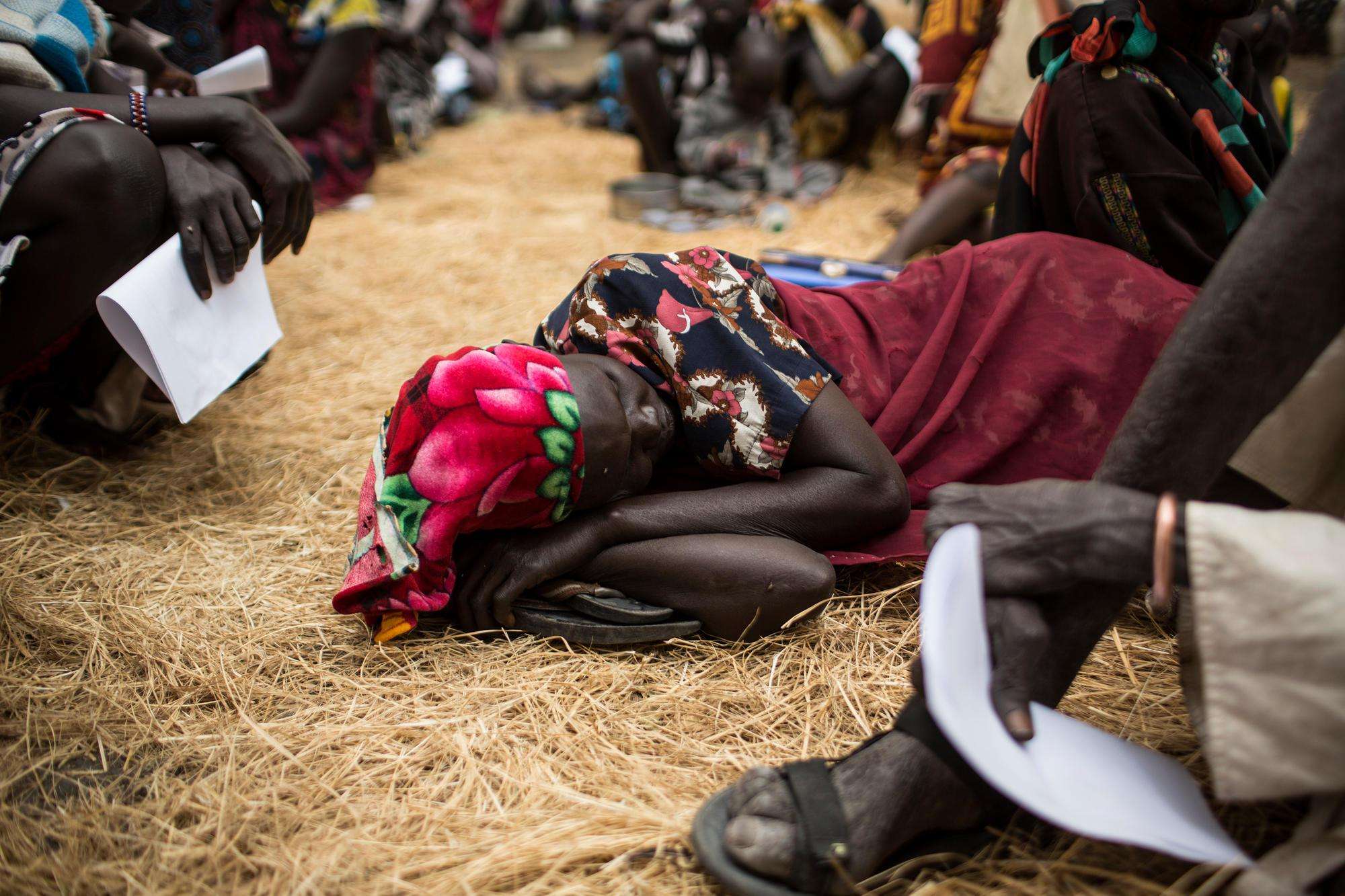JUBA, SOUTH SUDAN/NEW YORK—Thousands of people are fleeing for their lives amid a sharp escalation in fighting and attacks on civilians in the Leer and Mayendit counties of South Sudan over the past month, the international medical humanitarian organization Doctors Without Borders/Médecins Sans Frontières (MSF) said today, calling on all armed actors to stop the violence against the local population.
Survivors have told MSF of gang rapes, mass killings, villages looted and burned, and food reserves and possessions destroyed. MSF mobile clinic teams are providing basic medical care to communities that they can reach and have treated 21 survivors of sexual violence, with all cases reported to have taken place during the same 48-hour period.*
"People are running away from the ruthless violence of the warring parties," said Akke Boere, MSF operational manager. "They are caught between the front lines, and are themselves the target of attacks. Many tell us of neighbors and family members killed."
The ongoing clashes are forcing thousands of civilians to seek refuge in the bush, swamps and islands, with some people fleeing repeated attacks. One mother of nine children gave the following account:
"They entered the village at six o'clock in the morning, when we were still sleeping. We woke up and ran. We didn't have the time to take anything with us. I saw them shooting at people. My son was hit in the chest by a bullet. They started to burn the houses down, with people still inside. The worst thing about these attacks is the way they destroy everything. ... The village we ran to looking for medical care was also attacked. It was attacked by the same people again. This time, we didn't have the chance to escape, so we hid by lying on the ground. They couldn't find us. When calm returned, we fled to the bush."
People displaced by the fighting have now gone for more than four weeks without adequate shelter, clean water or food, and little access to medical care. The most vulnerable people, such as children and pregnant women, are at great risk of contracting diseases.
"In our mobile clinics, we are seeing medical issues directly related to the living conditions, including acute watery diarrhea, respiratory and skin infections and musculoskeletal disorders, with patients suffering from muscle or joint pain," said Georgina Brown, MSF medical coordinator in South Sudan. "The rainy season may worsen the situation considerably."
Attacks against health care facilities are also cutting off communities from much-needed medical assistance. In two locations where MSF works, medical supplies were looted and property destroyed.
The number of people that MSF is treating for sexual assault is very worrying, according to Brown.
"We know many survivors don't receive any treatment," she said. "People are still hiding in the bush and swamp areas because they're afraid of the ongoing violence, and so they don't have access to basic services, including health care. Until the violence calms down, we can't reach these people to give them the treatment they need."
The current fighting is the latest episode in the violence that has raged in Leer and Mayendit counties for several years. The warring parties have repeatedly targeted the civilian population and forced them to flee without shelter, food, water or medical care.
MSF has worked in South Sudan since 1983, bringing medical care in many parts of the country where access to health care and other humanitarian aid remain limited. Drawing on its values of independence, neutrality, and impartiality, MSF responds to medical emergencies, delivering medical assistance based on need and irrespective of race, religion, gender or political affiliation. MSF currently operates 16 projects throughout South Sudan.
* This information has been corrected.




